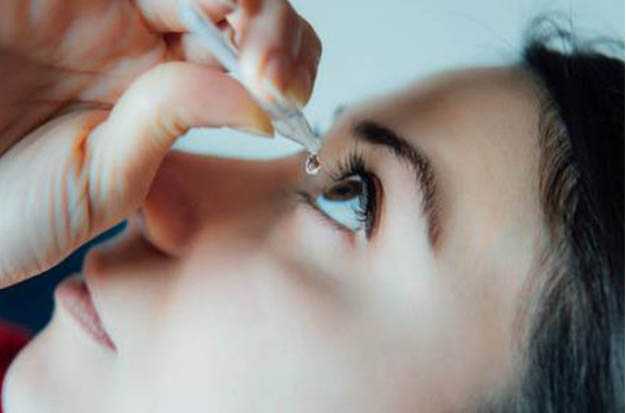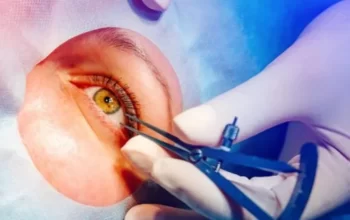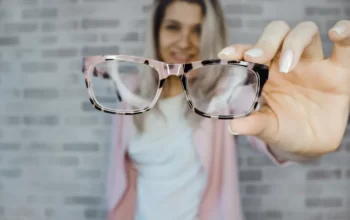
When people experience dry eyes in the morning, they may experience excessive watering, blurred vision, or redness of the eyes. Dry eyes can be a problem when you wake up due to medical conditions, poor tear quality, or a lack of tear production.
This article investigates potential causes, remedies, and treatment options for dry eyes in the morning.
What Are Dry Eyes?
When there is an issue with your natural tears, dry eyes result. It’s possible that you cry too little or that they dry up too quickly. The absence of the proper ratios of each essential component in your tears can also result in dry eyes.
Tears are made up of more than just water; they also contain fatty oils, mucus, numerous proteins, and other healthy materials. Your tears are composed of three layers, collectively referred to as the tear film.
Outer Lipid Layer
Meibomian glands, which are found in your eyelids, produce the oily lipids that make up this layer. Their function is to lubricate the inner surface of your eyelids and stabilize the tear film.
Middle Watery Layer
This layer, which is the watery part of your tears, accounts for about 95% of them. It is created by the lacrimal glands, contains nutrients and healthy compounds, and keeps your eyes moist.
Inner Mucus Layer
The primary component in this layer, mucin, helps distribute tears evenly and keeps tears stable
What Makes Tears Such a Crucial Component Of Eye Health?
The cornea, the transparent dome-shaped structure that covers your eye, is constantly being wetted by your blinks. The tear film starts to thin after you blink, but it should still keep your eyes moisturized until you blink again, at which point a thicker tear film is restored.
Tears are important for healthy eyes because they:
- Lubricate the cornea to prevent dryness
- Deliver oxygen and nutrients that nourish your eyes
- Enable proper vision by helping focus light
- Prevent infection with an antibacterial enzyme
- Protect your eyes by removing dirt and irritants
- Promote healing in a damaged eye
What Could Be The Cause Of Morning Dry Eyes?
Nocturnal Lagophthalmos
Nocturnal lagophthalmos, which can be caused by issues with the muscles that control your eyelids, a deformity in the eyelid tissue, or partial facial paralysis, is when you can’t fully close your eyes at night.
Dry eyes can also occur during the daytime with more severe lagophthalmos. Due to the eyelids’ inability to close completely, this condition causes the eye to dry out. As a result, there is constant air exposure to the front of the eye, which causes excessive tear evaporation. Any type of lagophthalmos can eventually harm the cornea, impairing vision if untreated.
Blepharitis
Eyelid inflammation known as blepharitis is brought on by the meibomian glands not functioning properly. Oils that are secreted into the tears by the meibomian glands, which are found inside the eyelids, lubricate the eye and form a barrier of protection on the surface of the eye, reducing tear evaporation.
When these glands clog or the oil thickens, blepharitis most frequently develops. Dry, itchy, red, and painful eyes are the main symptoms. Because you don’t blink at night, your glands become more clogged, and the vital oil layer of your tears evaporates while you sleep, these symptoms may be worse in the morning.

Medication
Several different types of medication, especially in the morning, can make your eyes feel dry. These include:
- Antipsychotics and antidepressants
- Antihistamines and decongestants
- Hypertension medications
- Hormone replacement therapy
- Gastrointestinal medications
- Pain relievers
- Skin treatments
- Chemotherapy medications
Age
The eyes tend to dry out more quickly as we age because they produce less oil and moisture. The resultant dryness, redness, and itching of the eyes are possible. Because of hormonal changes, menopausal women, in particular, may experience symptoms of dry eyes.
Eyelids may also loosen and pull away from the eyes as people age. The volume of the tears is further decreased as a result of watery tears dripping from the eyes more readily.
External Factors
External elements like air conditioners and heaters can dry out your eyes, especially if they’re in your bedroom or if you sleep with a ceiling fan on.
Air temperature and humidity, pollution, and windy conditions are some additional exacerbating external factors for dry eyes.
What Should I Do If My Eyes Are Dry When I Awaken?
Discovering the source of your dry eyes is the first step. A thorough eye exam at your eye doctor is the best way to learn that information.
Inform your doctor about all prescription drugs and dietary supplements you’re taking when you talk about your dry eyes.
Depending on your specific situation, your doctor might recommend any of the following treatment options:
Artificial tears. The lubrication of your eyes can be increased by using over-the-counter eye drops. A stronger cream for use while you sleep may be recommended by your doctor.
Your doctor will perform a procedure called a punctual occlusion during which he or she will seal the duct that removes tears from your eyes.
Thermal pulsation: If the meibomian glands, which make the oil in your tears, are clogged and causing dry eyes, your doctor may recommend a thermal pulsation system (LipiFlow). To dissolve the obstruction, this system warms and massages it.
Your doctor also might recommend any of the following medications:
- Cholinergics, or tear-stimulating drugs, such as cevimeline or pilocarpine
- Eye inserts, such as hydroxypropyl cellulose ophthalmic insert (Lacrisert), which are inserted between your eyeball and your lower eyelid for lubrication
- Antibiotics, can reduce inflammation that might be interfering with oil-secreting glands.
- Prescription eye drops, such as corticosteroids or cyclosporine (Restasis), can control inflammation of your cornea (surface of your eye)
Home Remedies When You Feel Eyes Dry
People could treat dry eyes upon waking with the following home remedies:
- Using a humidifier if they live in a dry environment
- Using a high-quality air filter if they live in a city or area with high levels of air pollution
- Limiting the use of fans or hair dryers, which can dry the eyes
- Wearing wraparound sunglasses in wind or sun
- Avoiding cigarette smoke, which can irritate and dry the eyes
- Taking regular breaks and blinking more often if looking at a screen for long periods
- Using lubricating eye gels, which may temporarily blur vision, so a person should use this before sleeping or resting
- Gently pressing a warm compress over closed eyes
- Gently washing eyelids with warm water and mild soap before rinsing thoroughly
- Drinking 8–10 glasses of water each day to stay well hydrated
Conclusion
The benefits of a restful night’s sleep may be diminished if you awaken with dry eyes. It can be annoying and frustrating to feel the itch, the gritty sensation, and the irritation.
Applying a warm compress and washing your eyelids are a couple of home remedies for dry eye discomfort.
Make an appointment with your eye doctor, though, if your discomfort lasts more than a few days. They can perform a thorough eye exam and make a recommendation for a course of action.



